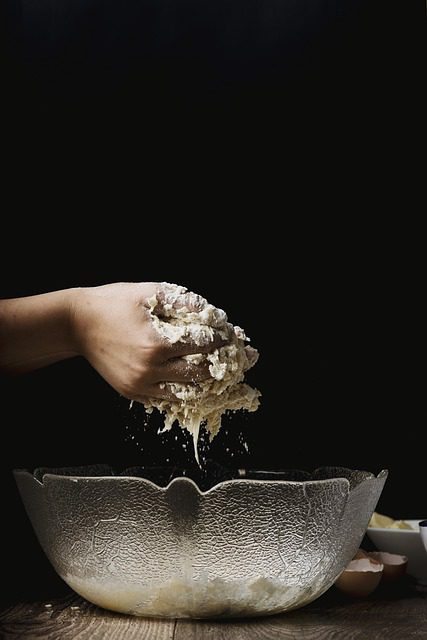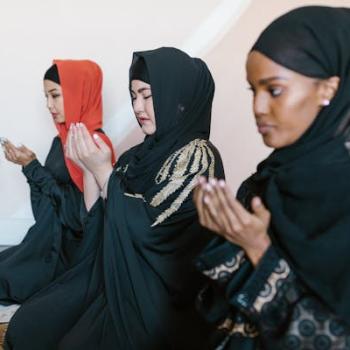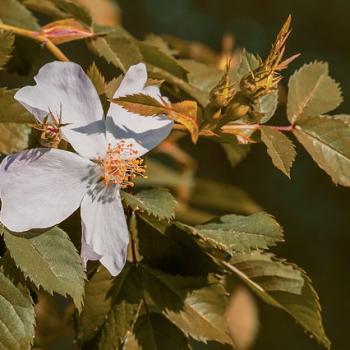
Two-thirds of the way through high school I fell under the spell of baking. Every night after finishing my homework I’d drift downstairs to the kitchen and start pulling down flour and sugar and spices from the pantry shelves. Soon the aroma of cinnamon rolls, chocolate chip cookies or banana bread would fill the house
At first my parents enjoyed the sweet treats I produced, and were glad to share the bounty with neighbors, co-workers and friends. As time went on, however, it started to become too much. My output exceeded what could be given away for ordinary occasions, and started to fill up the refrigerator and freezer. Neighbors and friends complained they were gaining weight. Still I continued to bake.
What was going on?
My father sat me down for a talk. He asked if I would consider going to culinary school. Because he did not have a four-year degree himself but had always spoken of a college education in reverent terms – particularly small liberal arts colleges with a focus on the humanities – this was a shock for me.
I had been banking on the idea of college all this time myself. It was the daydream that had carried me through high school. Now I worried that I had baked my way to the brink of losing my chance at college, even though culinary school was no more than a suggestion on my father’s part.
Soon after this conversation, I stopped baking. After finishing my homework in the evenings, I headed out the door for a walk instead of preheating the oven. The mixer and cooling racks went back into the cabinets and stayed there. And at the end of my senior year of high school, I went off to a small liberal arts college to get a degree in literature.
Being a bookworm, one of the smart kids, was how I’d always identified. That year of baking? It was just a phase. The award I got in Home Economics? I laughed it off as evidence of my incorrigible nerdiness, the compulsion to master the details of any subject no matter how mundane. I considered it almost as embarrassing as my high school yearbook photo.
But lately I’ve been reevaluating that time in my life, with a new interest in the role of cooking in Sufism. I had known before that the kitchen was a sacred space in traditional Mevlevi lodges where zhikrullah was practiced continually, even in the midst of chopping vegetables and washing the dishes. I also learned that whirling had traditionally been taught in the kitchen. But I hadn’t stopped to wonder about the reasons why.
Why is it said in that dervishes are made in the kitchen? Why should the sema be prepared among pots and pans?
The traditional 10001-day initiation period or chille started with a novice kneeling on a sheepskin in the kitchen. He remained there for the first three days (and nights) of his chille: sleeping little, eating little and talking little, in order to remain immersed in remembrance. If he passed these first tests, he would be assigned one of the 18 standard kitchen duties. These encompassed the full range of activities in the dergah (Sufi lodge), from lighting lamps and sweeping the courtyard to making coffee for visitors. But the most important jobs in the kitchen itself belonged to the dervishes with the highest spiritual station. The head cook, the cauldron master and the head dishwasher were the chief administrators of the lodge as well as its spiritual directors.
At the other end of the spectrum, novice dervishes were often given the job of running errands in order to test their ability to follow specific instructions, which would also be an indicator of their humility and receptivity to guidance. The final test of a novice’s initiation was cleaning the lodge toilets. If sincerity and devotion to the Path won out over pride and the ego’s aversion to unpleasant tasks, then the novice would be welcomed as a full dervish.
That is about as much as I have been able to gather so far about the Sufi kitchen. But the more I learn, the more it becomes clear that the training was fundamentally a process of purification. From entering the kitchen on one’s knees to serving and cleaning, all out of the longing to see the face of one’s Sustainer, is to ask to have one’s husks stripped away. It is not for the faint of heart. The Path is really for the stalwart of heart, who are also the most ardent of lovers.
With such volatile elements involved, it’s a process that requires guidance from a sheikh and the structure of the tradition. The Sufi kitchen is a place of deep work. Similar to the process of alchemy, Sufi cooks engage with physical materials as a way of activating spiritual processes. Alchemists try to turn lead or other earthy materials into gold. Sufi cooks aim to turn the symbolically heavy materials of (human) nature into the finer vibrations of light and awareness. Whether the particular mode is chemical reactions in a laboratory or steaming and stewing on the stove, contact with the Truth (Haqq in Sufism, or the philosopher’s stone in alchemy), is the catalyst for transformation.
As for making the kitchen a site of spiritual training, I think it’s about framing a different kind of knowledge. A kitchen is a realm of action, not a place to read or study. Cooking is a hands-on experience of transformation.
To serve in the dergah kitchen – and to be cooked in the Sufi process – is to engage in this kind of alchemy with conscious awareness.
That’s the difference I see now when I look back at my own baking phase in high school. My baking was in search of something I couldn’t have named at the time. Because I wasn’t just following recipes: I was experimenting with the qualities of sweet and sour, heavy and light, raw and cooked, albeit in the form of dough and batter. I think I was really looking for a different kind of knowledge and creativity: one enacted with hands and heart. But because this was threatening to an adolescent identity constructed around being book-smart, I backed away from the “brink” of this unknown realm.
Only with the grace of being on the Path has the awareness come that true knowledge, which is knowledge of the Truth, cannot come from books or study, but is a gift of the Divine. Mevlana says:
What God taught to the bees
doesn’t belong to the lion or wild ass.
The bees make a home of juicy sweetness
God opened the door of that knowing.
Little did I know as a teenager that one day I’d want to go to cooking school after all, only this time in hopes of being cooked myself.














